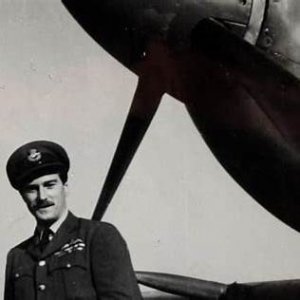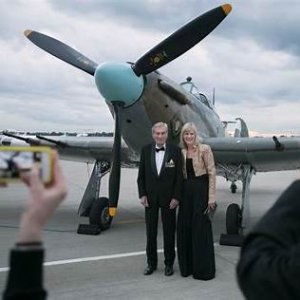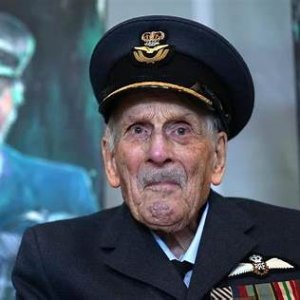Magna-Carta
Senior Member
- Location
- UK
As I was driving home at one o’clock this morning, listening to the news, it was announced that the last surviving Battle of Britain pilot had passed away.
Group Captain John "Paddy" Hemingway, the last surviving pilot of the Battle of Britain, has died at the age of 105. Born in Dublin in 1919, he joined the Royal Air Force (RAF) in 1938 and served with distinction during World War II. As one of the renowned "The Few.," he helped defend Britain against the German Luftwaffe in 1940. Over the course of the war, he survived being shot down four times, demonstrating remarkable resilience. After the war, Hemingway continued his RAF career until his retirement in 1969.
Churchill, after leaving an RAF Operations Room during the battle, turned to Major General Hastings Ismay and said, "Don't speak to me; I have never been so moved." Minutes later, he added, "Never in the field of human conflict was so much owed by so many to so few." Four days later, he echoed those words in a speech to Parliament, cementing them in history.
John Hemmingway



The first time I became aware of the Battle of Britain was as a young child, watching the movie of the same name. After a huge Sunday lunch, I lay back on the settee, completely absorbed in the film. It has stuck with me ever since.
Group Captain John "Paddy" Hemingway, the last surviving pilot of the Battle of Britain, has died at the age of 105. Born in Dublin in 1919, he joined the Royal Air Force (RAF) in 1938 and served with distinction during World War II. As one of the renowned "The Few.," he helped defend Britain against the German Luftwaffe in 1940. Over the course of the war, he survived being shot down four times, demonstrating remarkable resilience. After the war, Hemingway continued his RAF career until his retirement in 1969.
Churchill, after leaving an RAF Operations Room during the battle, turned to Major General Hastings Ismay and said, "Don't speak to me; I have never been so moved." Minutes later, he added, "Never in the field of human conflict was so much owed by so many to so few." Four days later, he echoed those words in a speech to Parliament, cementing them in history.
John Hemmingway



The first time I became aware of the Battle of Britain was as a young child, watching the movie of the same name. After a huge Sunday lunch, I lay back on the settee, completely absorbed in the film. It has stuck with me ever since.

